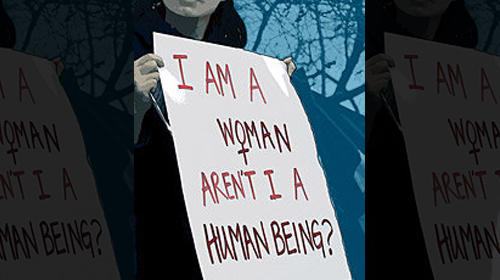United We Dream, ACLU, and Partners Launch Historic $30 Million Dollar Fund to Scale Up Access to Lawyers for Families Fighting Wrongful Detention, Deportation
WASHINGTON — United We Dream (UWD), the American Civil Liberties Union (ACLU), and Abundant Futures Fund (AFF), have joined forces to launch the Defending Our Neighbors Fund: a bold new initiative that will scale up crucial financial support to legal organizations all across the country. Housed within AFF, the Defending Our Neighbors Fund will help ensure immigrant families facing the threat of separation and wrongful detention and deportations have access to lawyers.
Already, the Defending Our Neighbors Fund has raised over $10 million with the goal of raising a total of at least $30 million in emergency response funding. With more than 11 million U.S. citizens living in households with an undocumented family member, countless American families face imminent risk of being torn apart. Many are forced to navigate a complex and punishing system alone, without access to legal counsel. Even young children, the most vulnerable members of our communities, are facing trained prosecutors without anyone by their side. Access to legal support is a vital lifeline for families facing the threat of being separated from their loved ones.
By surging much-needed financial support to trusted organizations already providing legal assistance to communities in need, the Defending Our Neighbors Fund helps protect everyone’s right to due process, ensure families can stay together, and increase access to high-quality legal representation and, when possible, bond assistance.
To learn more, donate, or become a partner in this historic initiative, visit defendingourneighbors.org.
Greisa Martinez Rosas, Executive Director of United We Dream, said:
“When I was 17, my father was deported and my family separated forever. That loss isn’t just personal — it is systemic and intentional, with thousands of people rendered vulnerable to mass deportation and family separation with zero access to the legal representation they deserve. I’ve spent every day since organizing and building our community’s collective power so we can protect the future of millions of American families that, just like my own, face the threat of separation.
"The Defending Our Neighbors Fund is about more than fighting for legal representation — it’s a vehicle for everyday people to move from empathy to action, from charity to solidarity in defense of their immigrant neighbors. This Fund is an opportunity for neighbors to stand with neighbors in fighting for a democracy that protects all of us.
"Together, we must invest in the infrastructure of justice - collective power, collective care and legal support. We invite everyone — philanthropists, organizers, and all our neighbors— to build with us. Donate to the Defend our Neighbors Fund.”
Anthony D. Romero, Executive Director of the ACLU, said:
“Deportations without due process, unjust detention, and family separation are attacks on bedrock Constitutional rights and all of our communities. The current moment calls for bold, innovative solutions to meet the most urgent needs of our immigrant neighbors and loved ones, and the Defending Our Neighbors Fund is doing just that. The Fund is the antidote to these harmful attacks, and now more than ever, we, the people, must take action to fight back.”
Chiqui Sanchez Kennedy, Executive Director of the Galveston-Houston Immigrant Representation Project (GHIRP), said:
“In March, we faced a comprehensive attack on immigrant children when legal lifelines were eliminated. In a single week, the government abruptly shut down funding for lawyers for unaccompanied children and placed children on “rocket dockets” where toddlers to pre-teens were forced to appear alone in court on an unprecedented, expedited timeline. With no notice, we were forced to halt representation for hundreds of children who depend on our advocacy. We were faced with the impossible choice of continuing to represent our clients without funding or abruptly withdrawing representation, leaving our clients vulnerable to further harm, exploitation and trafficking. Funding from the Defending Our Neighbors Fund was a lifeline for our clients, our staff, and the organization. It enabled us to find a path forward which included meeting the needs of our young clients and upholding our ethical duties as lawyers.”
Marisa Limón Garza, Executive Director of Las Américas Immigrant Advocacy Center:
“As hostility towards immigration groups continues, Las Américas lost major funding and faced difficult layoffs. Support from the Defending Our Neighbors Fund arrived at a critical moment. It helped us avoid deeper cuts, keep experienced staff on board, and respond quickly to urgent cases, including access to people detailed at new sites like Camp East Montana at Ft. Bliss.
"This funding came at a moment when everything felt uncertain. It meant we could keep showing up for people in detention, for families navigating impossible systems, and for a community that depends on us. In this environment, staying open isn’t guaranteed. Support like this lets us keep the doors open when our community needs us most.”
Mary Meg McCarthy, Executive Director of the National Immigrant Justice Center:
"The National Immigrant Justice Center has fought to continue providing life-saving legal services since this year's termination of federal programs that reached some of the most vulnerable people in the immigration system, including children who came to the United States alone to seek refuge. Support from the Defending Our Neighbors Fund has been critical to ensure NIJC can still provide counsel for immigrants who face a growing threat of being disappeared into the detention system and removed from the country without due process. In this midst of widespread family separations, the need for new funding streams for legal services is more urgent than ever."
###
Created in partnership with United We Dream Network (UWD) and the ACLU, The Defending Our Neighbors Fund is hosted at Abundant Futures Fund, a fiscally sponsored project of Rockefeller Philanthropy Advisors. The Fund is focused on fundraising, identifying grantees, and rapidly distributing resources to organizations working on the frontlines to support immigrant communities through legal representation and, when possible, bond assistance.


